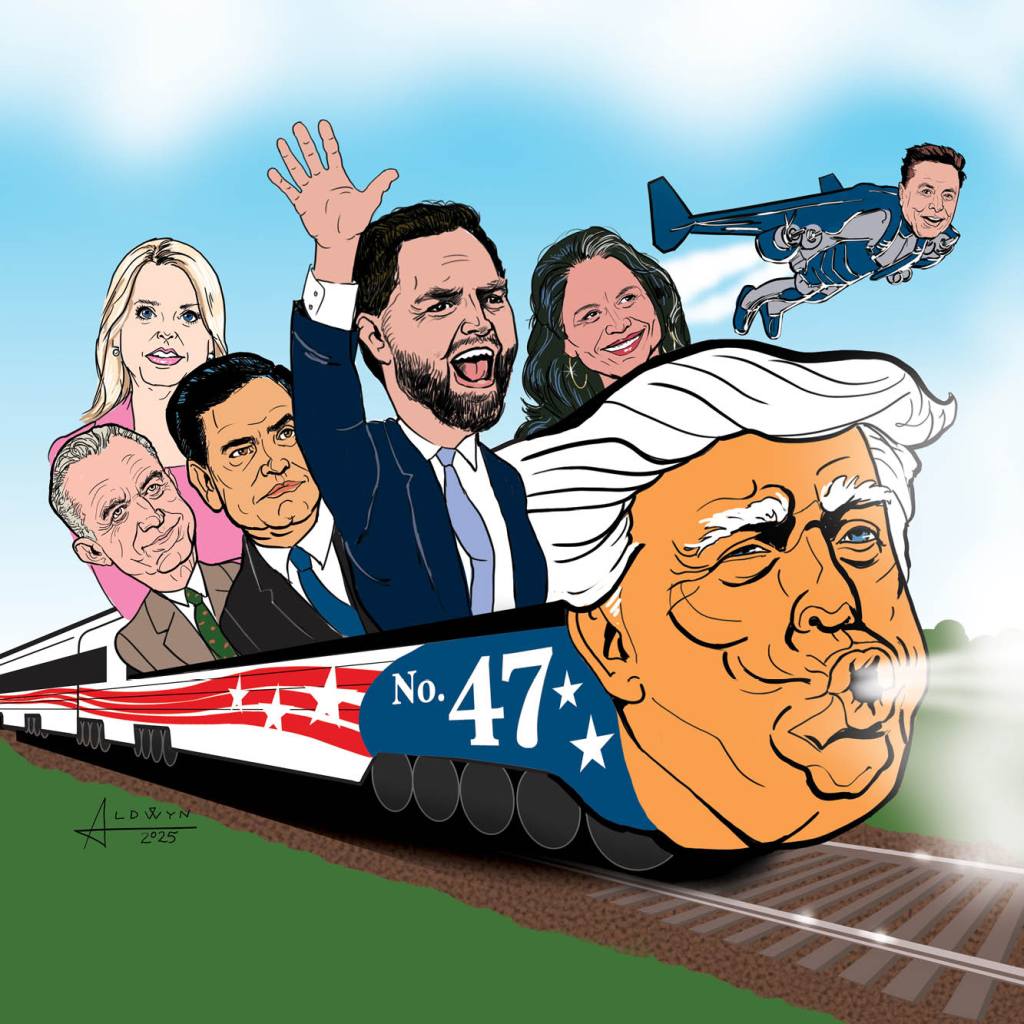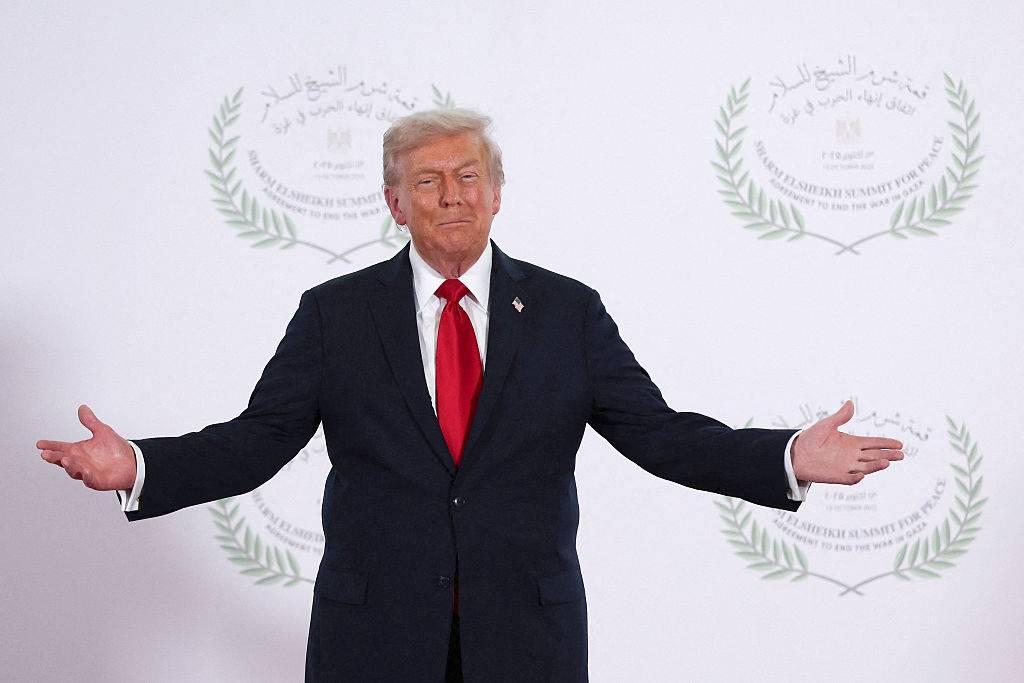As Inauguration Day approaches, the second Trump administration is staffing up. The president-elect’s picks are more or less what everyone expected, outside of a few curveballs. To be honest, the lack of outrage from Trump critics is the big surprise: apparently Trump Derangement Syndrome is a passing fever; even many who’ve argued against him seem to see some logic in the administration of outsiders he’s been signaling he’ll pick for years.
In Washington, where almost nothing changes from administration to administration, these cabinet picks might actually be able to effect some meaningful disruption. In almost every role that matters, Trump has opted for a nominee who has been an extreme critic of the very body he or she is set to oversee. There has been much fanfare regarding the Trump campaign’s embrace of podcasts and what was once non-traditional media, which used to offer the rare option of a fair hearing of ideas from heretics who dared to challenge DC’s conventional wisdom. Yet by thriving in that unorthodox ecosystem, a number of contrarians have risen, potentially to positions at the pinnacle of government — Senate confirmation depending, of course.
Call it Trump’s heterodox cabinet.
On the healthcare front, Trump’s appointments signal regret over the pandemic response of his first administration. As Neal Pollack explains on p.14, the nominations of Dr. Jay Bhattacharya and Dr. Marty Makary to head NIH and the FDA respectively are a rebuke to the medical establishment that devised draconian, one-size-fits-all lockdown policies and forced vaccine mandates. Quite the turnaround for people who were banned from Twitter and Facebook for spreading what was once called “Covid misinformation,” but is now widely seen as correct. Robert F. Kennedy Jr., nominated to lead HHS, would have been better placed at the Agriculture Department, where he could do less damage on things like vaccines and be more helpful in areas where many Americans are probably in agreement with him: the sorry state of our food supply chain and our attachment to Big Ag and corporations such as Monsanto.
At the Justice Department, Trump’s most radical initial pick, Matt Gaetz, was swiftly scuttled by senators, but his replacement choice, Pam Bondi, fits the reforms he has promised. Trump went even further by picking Kash Patel, a major critic of what he sees as the corrupt targeting of law-abiding Americans, to head the FBI. The response from the media and commentariat has been harsh condemnation along with claims that Patel will have a hard time getting respect from the FBI rank and file. Trump’s more likely to consider that a recommendation.
On the foreign policy front, Trump’s picks are relatively benign, though they represent a huge departure from the current uniparty that runs the departments of State and Defense. Trump has opted not for lockstep conformity but a cabinet stacked with a combination of realists, China-hawks and even a few good old-fashioned neocons. They’re likely to share skepticism about our intelligence services and reticence about foreign adventurism and involving American troops and treasure in further conflicts.
A group of millennial veterans of Iraq and Afghanistan, including Vice President-elect J.D. Vance, incoming director of national intelligence Tulsi Gabbard and the nominee for defense secretary, Pete Hegseth, are leaders in this skepticism, having seen firsthand what happens when America attempts to export its values through force. But as Ben Domenech points out on p.12, Trump’s foreign policy cabinet picks certainly don’t lean to the extreme isolationist right as many of his critics had feared.
The tail end of 2024 wasn’t exactly quiet on the foreign-policy front, so expect Team Trump to flex its muscles early on. Even as Israel signed a ceasefire with Hezbollah in Lebanon (Fin DePencier has more on p.42), the Middle East remains in flux, with the fall of Assad’s regime in Syria prompting widespread questions about the survivability of the mullahs in Iran. As for the war further north, a December meeting between Trump and Zelensky in Paris seems to have gone well, raising questions on how firm the returning president will be on his commitment to forcing a peace agreement against the Ukrainian leader’s stated wishes. Though their Syrian proxy is now sheltering in Moscow, Russia’s influence is still being felt in places like Iran and Georgia, where violent protests against a Russian-sympathetic government rage in the wake of its pulling out of talks about joining the European Union.
As Joe Biden departs, everything unfolding on the world stage is a repudiation of the ineptitude of his administration, which will undoubtedly be remembered for promising stability only to deliver more chaos. Though many insisted foreign leaders feared Trump’s return, it’s clear that quite a few of them are more than eager to get down to business. After sitting through so many meetings where Biden fell asleep, they almost seem relieved.
So far, a second Trump administration looks more promising than the first. The early days of his first administration were spastic and disorganized, but Trump 2.0 has learned more about the role of the presidency and the machinations of the federal government. Yes, the president is installing a team of loyalists with daunting agendas for reform. But that’s much easier to do now that he has a Republican Party in lockstep with him, providing a deep bench of subject-matter experts with a shared detestation of the federal bureaucracy and a mutual understanding of how the deep state operates to keep itself in power. Trump won with a mandate to remake Washington. If there’s ever a chance, it’s now.
This article was originally published in The Spectator’s January 2025 World edition.























Leave a Reply